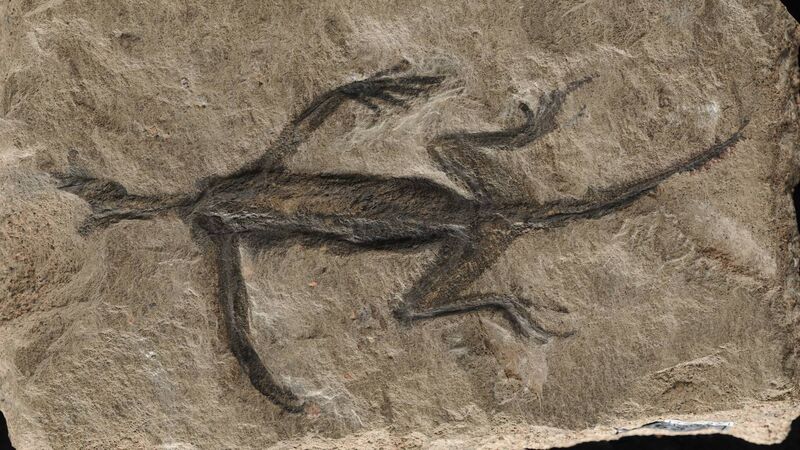Remains of ancient reptile found in Italian alps are mostly fake, UCC scientists say

The Tridentinosaurus antiquus, which was discovered in the Italian Alps in 1931. It was long thought that the dark outline was preserved soft tissues. However, researchers have now discovered that this colouring is, in fact, paint. Picture: Dr Valentina Rossi/UCC.













